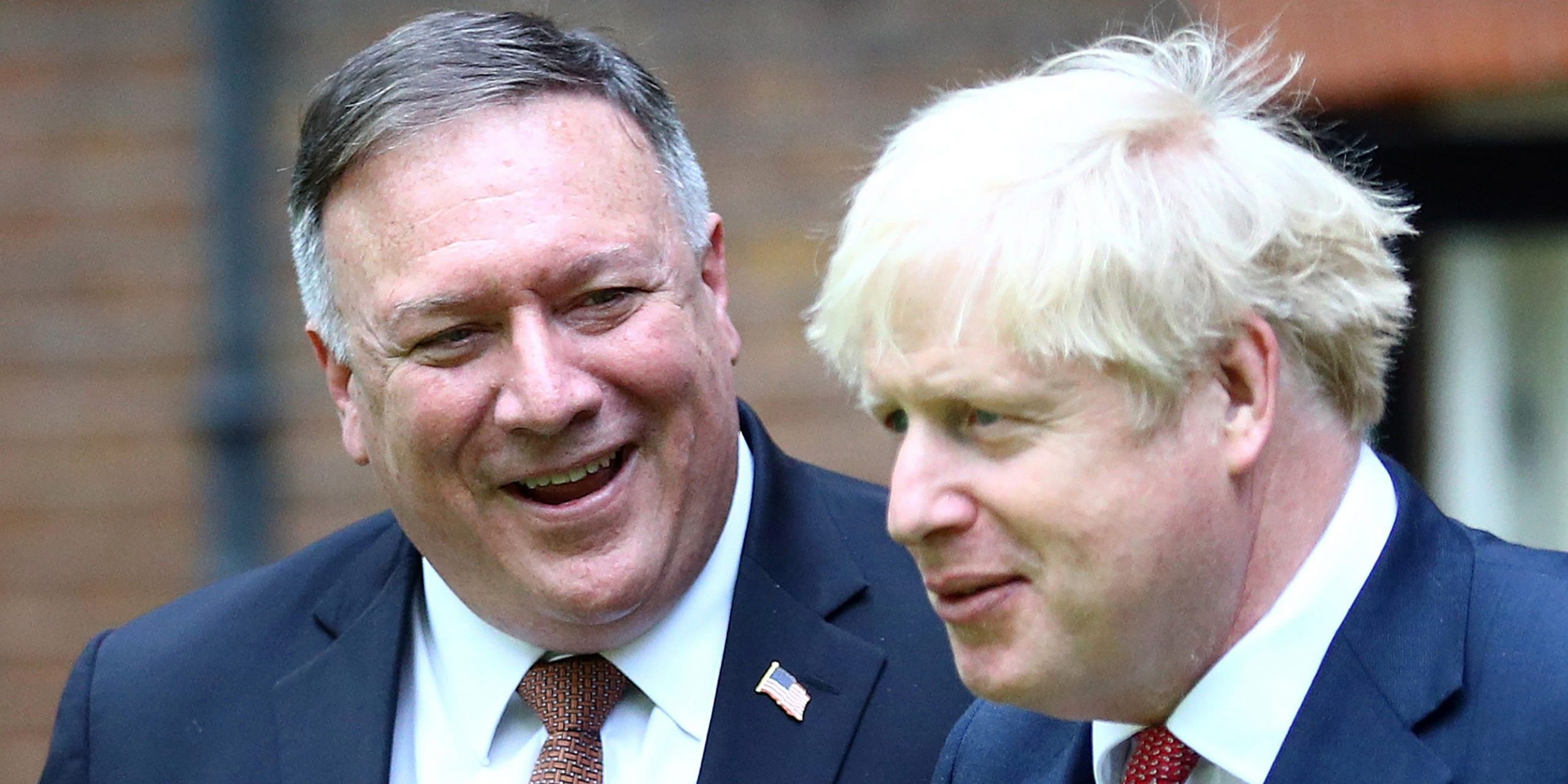- Boris Johnson’s government has reportedly abandoned hopes of striking a post-Brexit trade deal with the US this year.
- UK officials no longer think a trade deal will be struck before November’s US presidential election, according to the Financial Times.
- Officials told the paper that Brexit delays and subsequently the Covid-19 pandemic had pushed back the timetable pushed trade negotiations down the agenda in London.
- A post-Brexit trade deal between the UK and US would be seen as a big political win for Boris Johnson as he tries to push a “Global Britain” agenda after Brexit.
- Visit Business Insider’s homepage for more stories.
The British government has abandoned hopes of signing a Brexit trade deal with the US by the end of the year, according to a report.
Prime Minister Boris Johnson had hoped to strike a speedy trade deal by the end of 2020, which he sees as domestically important. But UK officials no longer think one will be agreed before November’s US presidential election, according to the Financial Times. Officials told the paper that Brexit delays and subsequently the Covid-19 pandemic had pushed back the timetable pushed trade negotiations down the agenda in London.
“Is it going to happen this year? Basically, no,” an official told the paper. “We don’t want to be bounced into a deal.”
A trade deal with the US would add just 0.2% of UK GDP according to leaked UK government estimates – but would be a big political win for Boris Johnson as he pushes to forge a vision of “Global Britain” outside the EU.
Mike Pompeo, the US secretary of state, visited London on Tuesday, where he said he had discussed the prospect of a trade deal with Johnson. "A third round [of negotiations] scheduled for later this month, a primary focus for the United States is to see that we can make progress on this and bring this to a closure just as quickly as possible," he said.
It comes after Trump promised at the G7 Summit last year a "phenomenal" trade deal with the UK and said trade would between the two countries would expand to "two or three times what we are doing right now."
But there remain significant sticking points in negotiations, notably over issues including agricultural tariffs and a digital sales tax.
The White House insists that Britain should allow imports of its agricultural products, such as chlorine-washed chicken, but Downing Street has so far refused to make significant concessions, given widespread domestic opposition to any such plan.
Johnson has vowed to "drive a hard bargain" in talks and "rigorously protect" the UK's public services, and refuse to drop regulatory standards in order to facilitate a deal.
